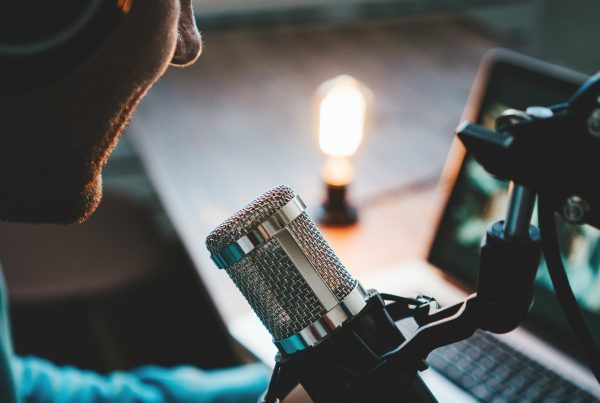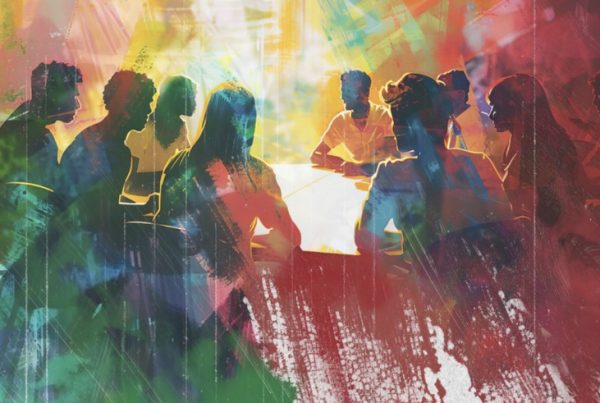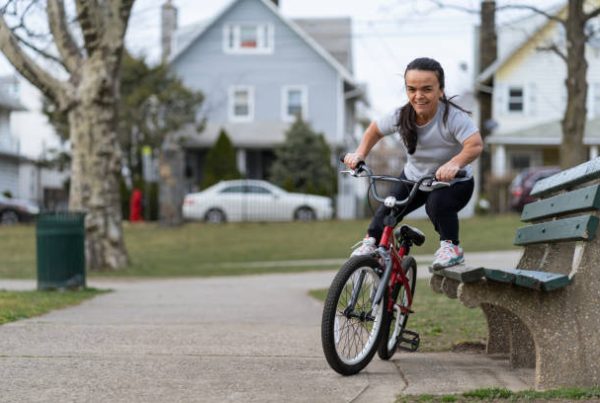By Banya Ojok
As an Early Career Researcher (ECR) passionate about disability-inclusive research, I constantly face the challenge of balancing rigorous research, securing funding, and engaging with interdisciplinary approaches. From October 8th to 10th, 2024, I attended the ECR face-to-face workshop at Stellenbosch University, South Africa. This workshop organised by the Institute of Development Studies through the Arts and Humanities Research Council (AHRC) disability-inclusive research networks, provided a transformative space to connect with fellow researchers from Botswana, Cuba, Ghana, South Africa, and the UK, along with the incredible student guides from Stellenbosch University, hone critical research skills, and reflect on how to integrate inclusivity into every facet of my work. Below, I share reflections on each day’s sessions, highlighting key takeaways and how they will shape my approach moving forward.
Day 1: Publishing, Governance, and Inclusive Dance Movements
The workshop kicked off with a warm welcome from Stephen Thompson and Lieketseng Ned, which set the tone for an environment of collaboration and shared learning. The first session, “Getting to Know Each Other,” allowed participants to engage in ice-breaking activities, fostering a sense of community among researchers from various networks.
Publishing in Academic Journals – Led by Leslie Swartz.
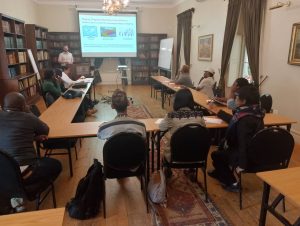 Why do some academic papers resonate while others fall flat? This was one of the key questions posed by Leslie Swartz in the first major session of the workshop. Swartz emphasized that successful publishing requires a deep understanding of your audience. It’s not just about having great ideas—it’s about presenting those ideas in a way that engages with ongoing conversations in the journal’s readership.
Why do some academic papers resonate while others fall flat? This was one of the key questions posed by Leslie Swartz in the first major session of the workshop. Swartz emphasized that successful publishing requires a deep understanding of your audience. It’s not just about having great ideas—it’s about presenting those ideas in a way that engages with ongoing conversations in the journal’s readership.
Regarding clarity, Swartz advocated for short sentences, active voice, and simplicity, encouraging us to “take the reader with you” on a clear journey. A memorable point was the idea that the “modest, the pompous, or the terrified” approaches to academic writing often hinder success, and instead, writers should aim for clarity and engagement. Often, we tend to second-guess our work or overcomplicate it, thinking that complexity equals brilliance. But, as Swartz reminded us, “simplicity is key.”
This session gave me a fresh perspective on the need for strategic thinking in academic publishing, particularly when balancing the tension between originality and relevance. One of the most practical pieces of advice was how to approach peer reviews. Rather than taking feedback as a personal critique, Swartz suggested viewing it as an opportunity to improve. Peer review is part of the academic process, and the sooner we embrace it, the stronger our work will become.
Reflecting on this session, I realized how much my own approach to publishing could benefit from a more strategic and confident mindset. I now feel better equipped to navigate the process of academic writing and submission, especially with the tools provided.
Research Governance and Funding – Led by Zara Trafford
Zara Trafford’s session on research governance and funding was a revelation. One of the biggest challenges for early career researchers is finding and securing funding for research projects. Trafford’s advice on strategically positioning oneself within the funding landscape was incredibly helpful.
Her key message? Tailor your applications. It’s not enough to have a well-developed research proposal; it’s crucial to understand the funder’s priorities and adapt your project to align with their goals. She also emphasized the importance of creating a “finding funding” spreadsheet to keep track of multiple grants. Additionally, Trafford encouraged us to explore other sources of funding, such as fellowships, travel grants, and dissemination grants, which can be key stepping stones for larger research projects. She also advised keeping alternative funding options open and being flexible when our first choice of funding isn’t successful.
This session was particularly eye-opening for me, as it made me realize the need to stay agile and adaptable in my approach to funding. Whether applying for a large research grant or a smaller travel fellowship, the key is to package the research in a way that meets the funder’s expectations while staying true to the core research objectives. Trafford also highlighted issues such as managing timelines, budgets, and collaborators, which are often overlooked aspects of the funding process.
Inclusive Dance Movement – Led by Gladys Agulhas
The first day concluded with an extraordinary session on inclusive dance movements led by Gladys Agulhas. During this practical session, Gladys took us through practical dance movements that she always uses while teaching the blind and the deaf blind in her dance classes. Gladys said that it is easy to include persons with disabilities in dance because the blind and the deaf blind adapt to gestures effortlessly making inclusion much more feasible. Participating in the movement exercises was both a physical and intellectual experience. It encouraged us to think about how we can integrate inclusivity in creative ways, not just in research design but also in how we engage with participants and the wider community. This session reminded us that inclusivity is not just a theoretical concept—it must be practiced and embodied in every aspect of our work.
Day 2: Novel Research Methods, Critical Thinking, Qualitative Data Analysis, and Working with Others.
The second day was packed with sessions that challenged us to think beyond conventional research methods and dive deeper into interdisciplinary collaboration.
Novel or Interdisciplinary Research Methods – Led by Myself, Banya Ojok.
I had the honor of leading a session on novel and interdisciplinary research methods. As researchers, we often work within the confines of traditional methodologies, but interdisciplinary approaches can open new doors for innovation and discovery. My session encouraged participants to think creatively about how they can incorporate methods from different disciplines to enhance the quality and scope of their work.
The feedback from participants was incredibly positive. Many shared that they had never considered the benefits of integrating methods from the arts, humanities, and social sciences in such a deliberate way. They also reflected on how the integration of various disciplines could enhance their own work. For me, leading this session reinforced my belief in the power of interdisciplinary collaboration. Moving forward, I am more committed to exploring how I can bring diverse methodologies into my own research, particularly in disability-research projects.
Critical Thinking – Led by Michelle Botha.
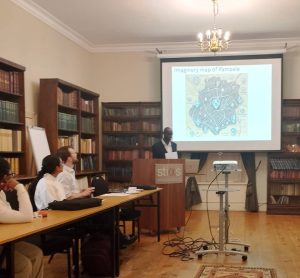 Michelle Botha’s session on critical thinking was a highlight of the day. She tackled the concept of critical thinking pushing us to question what we know and why we know it. A key lesson was the importance of interrogating accepted norms and practices, especially in disability studies. Critical thinking, as she explained, involves recognizing that social systems, practices, and categories are constructed, and thus, they can be deconstructed and redefined. I was particularly struck by her discussion on “power-knowledge” relationships, which highlighted how power shapes the production of knowledge, especially in the context of marginalized groups.
Michelle Botha’s session on critical thinking was a highlight of the day. She tackled the concept of critical thinking pushing us to question what we know and why we know it. A key lesson was the importance of interrogating accepted norms and practices, especially in disability studies. Critical thinking, as she explained, involves recognizing that social systems, practices, and categories are constructed, and thus, they can be deconstructed and redefined. I was particularly struck by her discussion on “power-knowledge” relationships, which highlighted how power shapes the production of knowledge, especially in the context of marginalized groups.
She challenged us to question everything—what we know, why we know it, and that our understanding of disability, and who gets to define it, is shaped by broader social and political forces.
This session was a turning point for me. It made me realize the importance of constantly interrogating the assumptions that underpin our research. By engaging in critical thinking, we can uncover hidden biases and ensure that our work contributes to more inclusive and just outcomes.
Later in the day, Botha introduced us to qualitative data analysis, specifically focusing on thematic analysis and coding. She emphasized that coding is both an art and a science—it requires careful thought but also creativity. She advised us to start small, code systematically, and allow themes to emerge naturally. Code data incrementally, focusing on patterns before forming broader conclusions.
This session resonated with me by providing practical tools that I can apply directly to my analysis, particularly when interpreting complex datasets. It was a reminder that the process of qualitative research is not just about what the data reveals, but also about what it means in the larger context of the research question.
Working with Others – Led by Stephen Thompson.
The final session of the day was on teamwork and collaboration. Stephen Thompson discussed the importance of embracing diversity in research teams. Diverse teams, he argued, often outperform homogeneous ones, but only when differences are openly discussed and valued. We learned about “Destroyer,” “Equalizer,” and “Creator” teams, and how recognizing and incorporating team differences could boost innovation. The session also covered the importance of understanding different personality types (Reds, Blues, Greens, Yellows) in team settings. Recognizing these traits in colleagues allows better management of collaborations and tailored approach to suit team dynamics. For instance, I realized that while “Reds” tend to be fast-paced and take charge, “Blues” value detail and systematic thinking. Balancing these dynamics will be key in fostering productive teams.
This session made me reflect on my own collaborative experiences. By fostering inclusive and open communication, we can create research environments where innovation thrives. I left this session inspired to better leverage the diversity within my teams to drive forward new ideas and approaches.
Day 3: Barriers, Opportunities and Moving Forward
The final day of the workshop provided a reflective space to discuss the structural and systemic challenges ECRs face, opportunities, and what can be done to support our growth in disability-inclusive research.
Barriers to ECRs Working on Disability-Inclusive Research – Led by Stephen Thompson.
Stephen Thompson opened the day with a session on the barriers that ECRs encounter in disability-inclusive research. Some of the participants revealed that lack of advanced degrees (Masters degree) hampers their participation in some of the research projects, while others highlighted the challenge of balancing academic work with research or writing articles in journals. Other issues also underscored were lack of funding and insufficient institutional support. This session stressed the importance of advocacy—both at the individual and institutional levels. As an ECR in Uganda, I have personally faced challenges of limited institutional support, which affects access to research resources and mentorship opportunities. Additionally, the struggle to secure funding, especially for disability-focused research, remains a significant hurdle in my context.
However, the session also provided a sense of hope that through collective action, we can work toward creating more supportive environments for inclusive research.
What is Needed to Strengthen ECRs Going Forward?
In a forward-looking session, Thompson facilitated a discussion on what ECRs need to thrive in disability-inclusive research spaces. The key points included the need for more mentorship opportunities, better access to funding, and a supportive academic environment that values interdisciplinary and inclusive approaches. This session gave me hope that with the right support systems in place, ECRs can overcome the barriers we face.
Conclusion: Moving Forward with Resilience and Purpose.
The ECR workshop at Stellenbosch University was a transformative experience. It provided me with new insights, practical tools, and a network of colleagues who share my passion for disability-inclusive research. As I reflect on the workshop, the most important takeaway is the reminder that research is not just about producing knowledge—it’s about creating impact.
An important concept I plan to apply is cascade learning, which was emphasized throughout the workshop. The idea is to transfer the knowledge gained during these sessions to colleagues, students, and peers in a systematic and deliberate way. I plan to engage in informal but deliberate conversations, sharing what I’ve learned about publishing, funding strategies, critical thinking, and team collaboration. Whether through face-to-face interactions or using platforms like email and WhatsApp, I aim to ensure that the valuable insights from the workshop are passed on, helping others grow in their careers. This approach will not only reinforce my own learning but also foster a wider community of ECRs who are better equipped to undertake disability-inclusive research.
